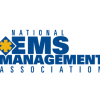One critical lesson that emerged after the 2001 terrorist attacks is the importance of community readiness and resilience (the ability to rebound with confidence after a disaster happens). Toward that end, the Department of Homeland Security (through FEMA) coordinates Citizen Corps, which was created as a way to bring government and community leaders together to figure out ways to involve everyday people in all-hazards emergency preparedness.
Surveys conducted by Citizen Corps show that people generally don’t think a terrorist attack will happen to them, but they can be motivated to prepare by being made aware of vulnerabilities to natural disasters (thus the importance of an “all hazards” approach). Their research also shows that citizens have an unrealistic expectation that professionally trained first responders (police, fire, EMS) will be available to help them in the immediate aftermath of a major event.
Toward the goal of citizen engagement, awareness and readiness, September was declared “National Preparedness Month” in 2004. In honor of the 10th anniversary of 9-11, the theme of this year’s campaign is “A Time to Remember. A Time to Prepare.” One way for any agency to pay tribute is to become a member of what FEMA calls its Coalition—really any entity that wants to become involved and pledges to promote readiness and awareness through the means most appropriate to its organization. Registering at fema.gov provides access to discussion groups, a resource toolkit and ideas for implementing local programs.












